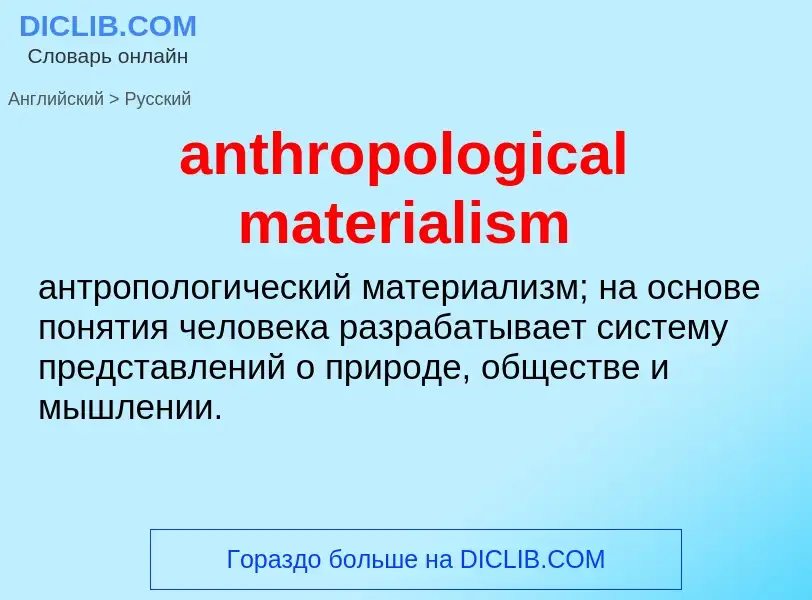Перевод и анализ слов искусственным интеллектом ChatGPT
На этой странице Вы можете получить подробный анализ слова или словосочетания, произведенный с помощью лучшей на сегодняшний день технологии искусственного интеллекта:
- как употребляется слово
- частота употребления
- используется оно чаще в устной или письменной речи
- варианты перевода слова
- примеры употребления (несколько фраз с переводом)
- этимология
anthropological materialism - перевод на русский
[mə'ti(ə)riəliz(ə)m]
существительное
общая лексика
меркантильность
философия
материализм
Определение
Википедия
Materialism is a form of philosophical monism which holds matter to be the fundamental substance in nature, and all things, including mental states and consciousness, are results of material interactions. According to philosophical materialism, mind and consciousness are by-products or epiphenomena of material processes (such as the biochemistry of the human brain and nervous system), without which they cannot exist. This concept directly contrasts with idealism, where mind and consciousness are first-order realities to which matter is dependent while material interactions are secondary.
Materialism is closely related to physicalism—the view that all that exists is ultimately physical. Philosophical physicalism has evolved from materialism with the theories of the physical sciences to incorporate more sophisticated notions of physicality than mere ordinary matter (e.g. spacetime, physical energies and forces, and dark matter). Thus, the term physicalism is preferred over materialism by some, while others use the terms as if they were synonymous.
Philosophies traditionally opposed or largely historically unreconciled to the scientific theories of materialism or physicalism include idealism, pluralism, dualism, panpsychism, and other forms of monism.
From classical antiquity, Epicureanism is an ancient philosophy of materialism as a major forerunner to modern science. Epicurus, although ostensibly a deist, affirmed both the literal existence of the Greek gods in either some type of celestial "heaven" cognate from which they ruled the Universe (if not on a literal Mount Olympus) and his philosophy promulgated atomism, while Platonism taught roughly the opposite, despite Plato's teaching of Zeus as God.

![In 1748, French doctor and philosopher [[La Mettrie]] espouses a materialistic definition of the human soul in ''[[L'Homme Machine]]''. In 1748, French doctor and philosopher [[La Mettrie]] espouses a materialistic definition of the human soul in ''[[L'Homme Machine]]''.](https://commons.wikimedia.org/wiki/Special:FilePath/La Mettrie, L'homme machine, 1748 Wellcome L0015753.jpg?width=200)
